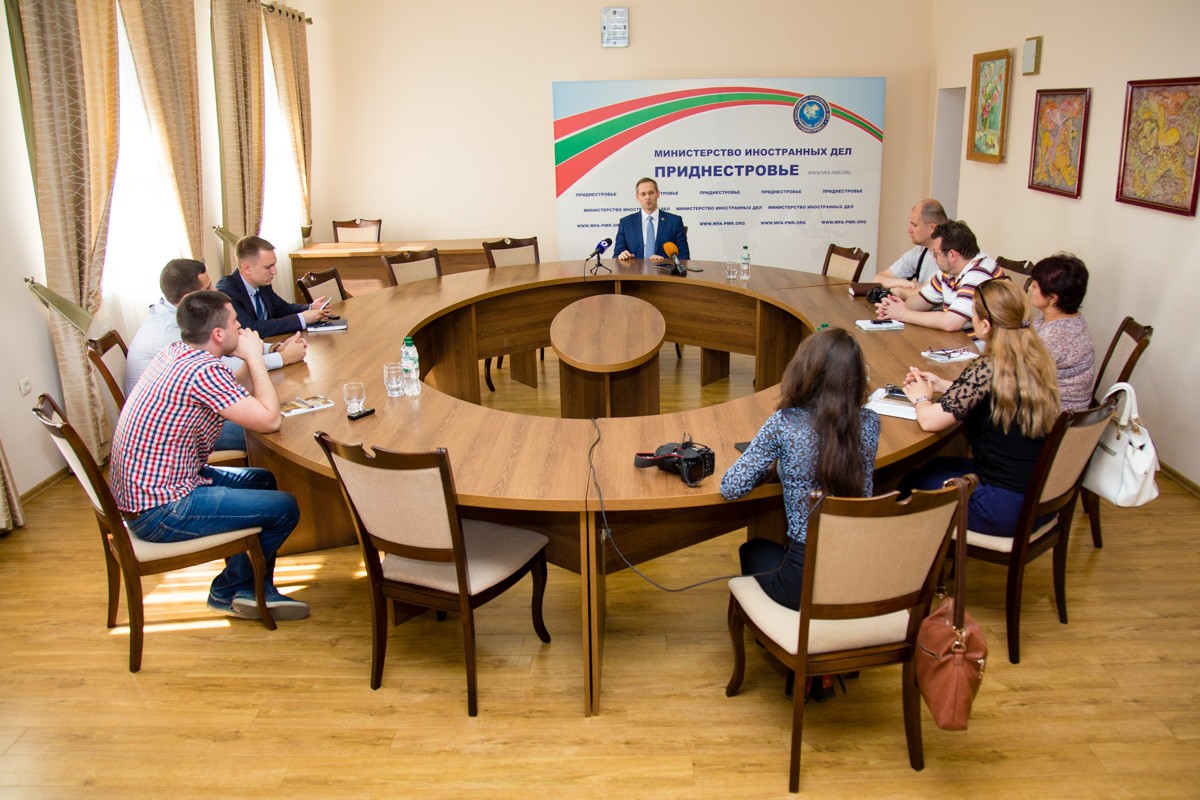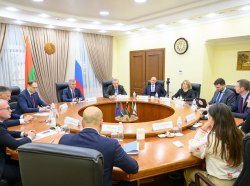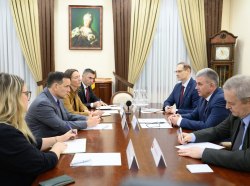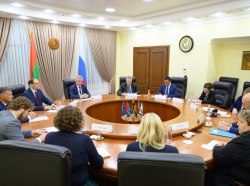Tiraspol, 5 June. /Novosti Pridnestrovya/. There are no obstacles to holding a «5+2» meeting, but the OSCE chairmanship-in-office is simply preventing Pridnestrovie from discussing at the international level a whole range of issues on the agenda, Pridnestrovie's foreign minister Vitaly Ignatyev said during a press briefing today.
According to the diplomat, no international party to the negotiation process other than Russia has made efforts since the start of the year to organise a «5+2» format meeting.
«The situation is all the more unique because Moldova formally declares it is not opposed to '5+2' meetings, thus passing the ball to the OSCE chairmanship-in-office, which tells very strange things from the diplomatic point of view that it is necessary to reach an agreement first and only then to hold a meeting. 'The Principles and procedures [of the negotiating process]' clearly stipulates that no preconditions are permissible and that any side may put on the agenda any issues it considers relevant. Therefore, there are no obstacles to holding a '5+2' meeting," noted Vitaly Ignatyev.
But there is still no dialogue in the official negotiating format. The international partners especially disapprove of Pridnestrovie's proposal, backed by Russia, to include in the agenda the issue of joint Moldo-Ukrainian control over the Pridnestrovian border. Both Moldova and the OSCE strongly reject this idea, saying that the joint control is a matter of purely bilateral relations between Moldova and Ukraine.
The Pridnestrovian MFA believes that some parties to the «Permanent conference…» do not want to hear about the problem which is of concern to the PMR and may result in a new spiral of the country's blockade.
«Someone doesn't want to hear the truth, to discuss substantive problems, including the joint control. Someone is not ready to give persuasive answers to the questions posed by the Pridnestrovian side. And we have plenty of initiatives and concrete proposals. Therefore, we regard the failure to hold a meeting for half a year under flimsy pretexts as a form of political and diplomatic advocacy and a cover for unilateral actions taken by Moldova with the direct support of the EU," said the minister.
According to Vitaly Ignatyev, the launch of the joint control project «has created quite a new reality». Those international negotiators who have unilaterally condoned or contributed to the realisation of this step, thus assuming responsibility for any negative consequences that may arise.
«In terms of the economy, security and transborder movements by people, vehicles and cargoes, we predict serious problems and difficulties. Perhaps this is why Moldova has decided to implement this plan in several stages. As we have heard, the initial stage provides for certain control over export transactions only. And exports through the Kuchurgan checkpoint is minimal. We are primarily concerned about import control procedures. And in order to minimise risks and losses, we are doing systemic work both at the diplomatic and practical levels," said Vitaly Ignatyev.
The foreign minister said that consultations with Russian partners were scheduled for the near future on the whole range of issues surrounding the negotiating process.
The journalists asked the minister about the recent consultation of the Moldovan leadership with the ambassadors of Russia, Ukraine, EU to Moldova, as well as with the head of the OSCE Mission, at which the Moldo-Pridnestrovian settlement was discussed. Pridnestrovian diplomats had not been invited to the meeting. According to Ignatyev, such a meeting indicates that the international mediators have some expectations and questions about Moldova's stance.
«I believe that during the meeting the Moldovan side tried to make clear its position on the negotiating process. And judging from the comments we've heard, they discussed the development of a common position, a consolidated approach to Pridnestrovie," the diplomat explained.
The minister explained, in the meantime, that Pridnestrovie's position was clear and unambiguous and that the international partners did not and could not have questions to us.
«We don't engage in any behind-the-scenes interaction; there is a clear consensus between all branches of power president defines here, and the president defines the country's foreign policy. The international partners do not have questions about this. But they seem to have such questions to Moldova," said Ignatyev.










